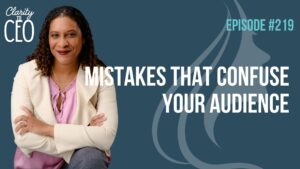Elevate Your Business Strategy: The Essential Guide to SMART Goal Setting
In the latest episode of the Empower Business Accelerator Podcast, host Philippa Channer delves into the critical importance of setting clear business goals. She introduces the SMART goal framework as a powerful tool for creating effective and actionable goals. This blog post will break down each component of the SMART framework in detail, offering actionable advice and thorough explanations to help entrepreneurs develop a structured approach to goal setting.
Understanding the SMART Framework
The SMART framework stands for Specific, Measurable, Achievable, Relevant, and Time-bound. Each component plays a vital role in ensuring that business goals are clear, actionable, and aligned with broader business objectives.
- Specific: Clarity is Key
Philippa emphasizes that specificity is crucial in goal setting. Vague goals, such as “I want to grow my business,” lack direction and clarity. Instead, she encourages entrepreneurs to articulate their goals in a specific manner.
Example of a Specific Goal:
- Vague Goal: “I want to grow my business.”
- Specific Goal: “I want to increase my client base by 20% by the end of next year through enhanced marketing efforts and increased networking.”
Actionable Tips:
Define the What, Why, and How:** Clearly state what you want to achieve, why it is important, and how you plan to accomplish it.
Use Detailed Descriptions:** Avoid general terms and use detailed descriptions to outline your goals.
- Measurable: Track Your Progress
Without measurable criteria, it becomes challenging to track progress and determine success. Philippa stresses the importance of having quantifiable metrics to gauge growth.
Example of a Measurable Goal:
Measurable Aspect: “Track the number of new clients secured each month to gauge growth.”
Actionable Tips:
- Set Quantifiable Targets: Use numbers, percentages, or other quantifiable metrics to define your goals.
- Regularly Monitor Progress: Establish a system for regularly tracking and reviewing your progress.
- Achievable: Set Realistic Goals
While dreaming big is encouraged, Philippa highlights the need for goals to be realistic and attainable. Setting overly ambitious goals can lead to frustration and burnout, especially for new business owners.
Example of an Achievable Goal:
Realistic Goal: “Increase client base by 20% through specific marketing strategies.”
Actionable Tips:
- Break Down Larger Goals: Divide larger aspirations into smaller, manageable steps.
- Assess Resources and Capabilities: Ensure you have the necessary resources and capabilities to achieve your goals.
- Relevant: Align with Business Objectives
Each goal should align with broader business objectives. Philippa explains that goals should contribute to the long-term vision of the business.
Example of a Relevant Goal:
Aligned Goal: “Building a larger social media following aligns with my goal of increasing brand awareness and engagement.”
Actionable Tips:
- Ensure Alignment: Make sure each goal supports your overall business strategy and long-term vision.
- Prioritize Goals: Focus on goals that have the most significant impact on your business objectives.
- Time-bound: Set Deadlines
Philippa emphasizes that every goal should have a deadline to prevent procrastination and maintain focus. Setting a specific end date helps hold yourself accountable and work diligently towards achieving your goals.
Example of a Time-bound Goal:
Deadline: “Achieve the goal of increasing Instagram following by 1,000 new followers within four months.”
Actionable Tips:
- Set Clear Deadlines: Define specific timelines for achieving each goal.
- Create a Timeline: Develop a timeline with milestones to track progress and stay on schedule.
Practical Example: Increasing Social Media Following
To bring the SMART framework to life, Philippa provides a practical example of setting a goal to increase social media following. Here’s how she breaks down the goal into each component of the SMART framework:
Specific: “I want to increase my Instagram following by 1,000 new followers.”
Measurable: “I will track follower growth each week and aim for an increase of 250 followers per month.”
Achievable: “I can realistically achieve this goal by increasing my posting frequency, collaborating with influencers, and running targeted ads.”
Relevant: “Building a larger social media following aligns with my goal of increasing brand awareness and engagement.”
Time-bound: “I will achieve this goal within four months.”
Upcoming Group Session and Special Offers
In addition to discussing the SMART framework, Philippa announces an upcoming group session launching in January 2025. She invites listeners to register early for a discount and offers a free one-hour session for those interested in learning more about the Empower Her program. This initiative emphasizes the value of community and support in achieving business goals.
Conclusion
The SMART goal framework transforms abstract ideas into concrete, actionable steps. Philippa Channer encourages entrepreneurs to view goal setting as a dynamic process, where even if a goal is not fully achieved, the progress made can still significantly impact the business. By setting Specific, Measurable, Achievable, Relevant, and Time-bound goals, entrepreneurs can drive their businesses forward with clarity and purpose.
For more insights and to join the upcoming group session, tune into the Empower Business Accelerator Podcast and take advantage of the early registration discount. Start setting SMART goals today and watch your business thrive!














